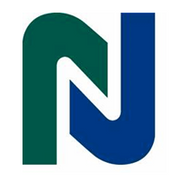Why Young People Should Choose Credit Unions Over Banks

As teenagers, most people use the same bank as their parents or don’t have an account of their own. However, becoming an adult means making your own decisions, including which financial institution to trust with your money. While big national chains might come to find first, there are many reasons to use a credit union, especially for young people just getting started on life. To help you make the best decision for your future, here’s more information about these institutions and how they differ from traditional banks.
What Is a Credit Union?
Most banks are publicly traded companies, which means their primary responsibility is to make money for their shareholders. Since they’re motivated by profit, banks will generally charge the highest interest rate possible, while paying out as little as they can.
 Credit unions, on the other hand, are owned by the members themselves, so you essentially become a shareholder when you open an account. As institutions designed to promote the well-being of their members, credit unions typically keep their interest rates low and send profits back to account holders at the end of the year.
Credit unions, on the other hand, are owned by the members themselves, so you essentially become a shareholder when you open an account. As institutions designed to promote the well-being of their members, credit unions typically keep their interest rates low and send profits back to account holders at the end of the year.
Why Are They a Good Choice for Young People?
Many young people are on a tight budget, especially if you’re in college or just getting your career off the ground. Opening an account with a credit union will ensure you get the maximum return on your money and access to low-interest credit cards and lending services.
Credit unions are also known for delivering friendlier, more personalized service than banks, making them a good option for those without much financial experience. At most branches, you’ll find a caring team of professional staff members who will take the time to help you understand how their products can impact your finances.
For over 80 years, North Jersey Federal Credit Union in Totowa, NJ, has provided essential financial services and helpful customer support. They pride themselves on taking a personal approach to banking, and helping their members succeed. Visit their website for a closer look at their account options, follow updates on Facebook, or call (973) 785-9200 to discuss your needs with a helpful representative.
About the Business
Have a question? Ask the experts!
Send your question

